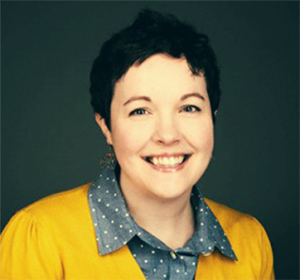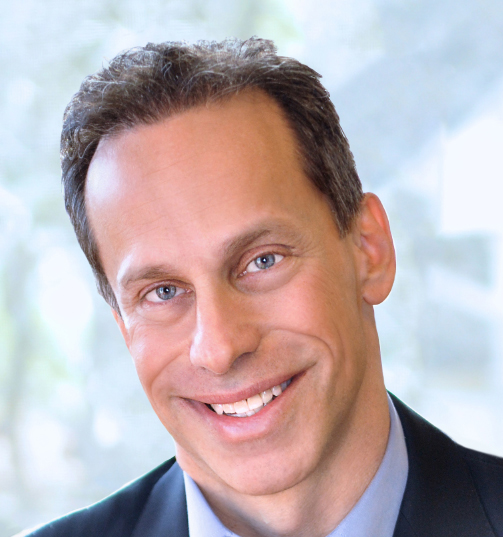Interview with Asking Matters Member Sara Janzen
by Brian Saber
Sara, a fellow Kindred Spirit, is a Major Gift Officer for the California Academy of Sciences. She’s been a member for just over a year, and is using Asking Matters in various ways personally and throughout her department. I was particularly fascinated to hear how she’s using Asking Matters material in the performance review process. Among other things, she asks her staff to watch particular Recorded Trainings as part of their continuing education efforts.
What has your experience been? I’d love to hear from you at brian@askingmatters.com. Brian Saber, President.
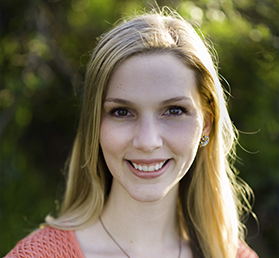 BRIAN: Hi, Sara. You’ve been a member a bit more than a year now, and I’d love to know how Asking Matters and the Asking Styles have helped you most during that time.
BRIAN: Hi, Sara. You’ve been a member a bit more than a year now, and I’d love to know how Asking Matters and the Asking Styles have helped you most during that time.
SARA: The two biggest advantages of being a member have been learning about my Asking Style and having professional development resources on-demand.
I’ve been a fundraiser for much of my career, and I’ve always had a sense of what my strengths and greatest areas for improvement are. I’m great at building and maintaining relationships, but I can’t remember dates, budgets, or stats to save my life! This caused me a lot of stress when it came time for donor or staff meetings, because I felt like I was severely lacking as a professional. It wasn’t until I learned about the Asking Styles and that I was a Kindred Spirit that I understood I don’t have to be everything to be great at my job and make an impact. I’ve come to embrace my Kindred Spirit fabulousness, forgive my need for cheat sheets and one-pagers, and partner with colleagues and volunteers who complement my style. This has led to much less stress which means I’m more present, confident, and authentic with donors and prospects – something that means very much to me and that leads to greater fundraising success for the organization.
I should confess I am a professional development nut. I can’t get enough of it. I love learning more about our field and how to bring out the best in volunteers, org leadership, donors, and myself. I just love it. The Asking Matters treasure trove of handouts, recorded trainings, and activities is like a work-related Disneyland for me. I can use the resources at any time – squeezed in between meetings or stretched over a couple of hours. They are clear, concise, and relevant. I use them for my own education and to help me better support others in their own professional growth.
BRIAN: Wow, that is quite a testimonial! Thanks, Sara.
How do you use the Asking Matters resources to support others in their professional growth? I know many of our followers lead development offices and are always looking for some pointers.
SARA: I was formally introduced to Asking Matters when department leadership designed an activity around the Asking Style Assessment for our annual retreat. All staff members took the questionnaire and then partnered with someone with a different style. We were led through a number of different scenarios unrelated to fundraising that had us asking our partner for something by appealing to their Asking Style. It was great practice and a wonderful opportunity to receive immediate feedback to improve our pitch. It also gave us an opportunity to learn more about each other, our strengths, and how we might partner together to better reach our constituents.
Asking Matters resources are helpful throughout the year, but I find them especially helpful when on-boarding new staff and after performance reviews. The tools and recorded webinars offer great content that could easily complement someone’s professional development plan or introduce new hires to fundraising concepts.
BRIAN: Can I steal that and create an Asking Matters exercise like the one you did? I like the idea of using the Asking Styles to ask for something other than a charitable gift!
SARA: I’ll ask the women who designed the exercise what they think. They might remember the exact scenarios. Some were pretty funny!
BRIAN: Sara – I think you could teach the Asking Matters material! Interesting that you should talk about companies wanting evaluations. We talk about how Mission Controllers and Rainmakers are more suited for the institutional donors because those funders generally want facts, figures, and outcomes. I understand the challenge as a fellow Kindred Spirit. I often end up sending that material as a follow up once I know exactly what they want. Do you find as you move more toward asking individuals that you naturally need less of that at hand?
SARA: I still work on the Corporate Giving side of things, so I haven’t been soliciting individuals for personal donations. That said, I think it’s easy for fundraisers to forget that individual relationships are essential to successful corporate giving. I may not be asking them for a personal donation, but I am asking them to advocate for and invest in us. The conversation might focus more on visibility or evaluation, but without connecting with the values and mission of the company’s employees, you’re not going to get anywhere.
In fact, many companies now administer their corporate giving through a committee consisting of employees. It’s always about people – the people our organizations serve, the staff who make the programs and services possible, the donors who feel they are making a meaningful contribution and difference by investing in our organizations. We are the privileged folks who get to use our talents to connect those groups of people. It’s a win-win-win-win! Just like in individual giving, I need to understand what will help my prospect say “yes.” If it means more impact stories, I’ve got them! If it means more facts and figures, I find a way to provide that. I try to be creative about bringing quantitative information with me to a meeting. I might not remember the total number of school children served by our field trip program, but I will easily remember that by awarding us the requested grant amount, the prospective donor would give an entire classroom of children the opportunity to experience the wonder of our museum and the natural world. I find the measurable outcomes that resonate with me so I can convey my passion authentically to a prospective donor. You can’t fake that enthusiasm, and people can see through you if you try. I completely agree that sending hard facts or requested evaluation materials as a follow-up is very helpful if that’s what your prospect desires.
BRIAN: So true – almost every significant gift comes from that face-to-face experience. So many development officers are superb with corporations, foundations and government funders, which means they’ve got a broader skill set for soliciting individuals than they think!
Sara, I wanted to get back to another comment you made. You mentioned using the Asking Matters material with staff after performance reviews. Can you expand on that?
SARA: Sure. As part of our performance review process, we set goals for the coming year. In addition to goals related to fundraising and strategy I always include at least one professional development goal and encourage my staff to as well. Once I’m specific about the skills I will further develop it’s easy to find relevant recorded trainings and other resources on the Asking Matters member page to help guide the way. It’s a nice starting point in the process and a great way to demonstrate that you are actively working on that goal.
BRIAN: Wonderful. A whole new set of benefits. Sara, thanks so much for sharing your experiences with us, and thanks for being such a great advocate for Asking Matters!
Mission Possible: Engaging Your Board in Fundraising
by Lori Jacobwith
This guest post was contributed by Lori Jacobwith. Read more about her and how she helps fundraising professionals on her website.
I’m often asked, “How do we get our board to help us with fundraising?”
And my answer is: Not all of your board members should or are able to help you ask for financial gifts. If you want them to speak about your organization with passion, sharing stories about those you serve, invite others to do specific things AND feel great about their board experience, then YOU have to make sure to support them and communicate clearly how they can best serve.
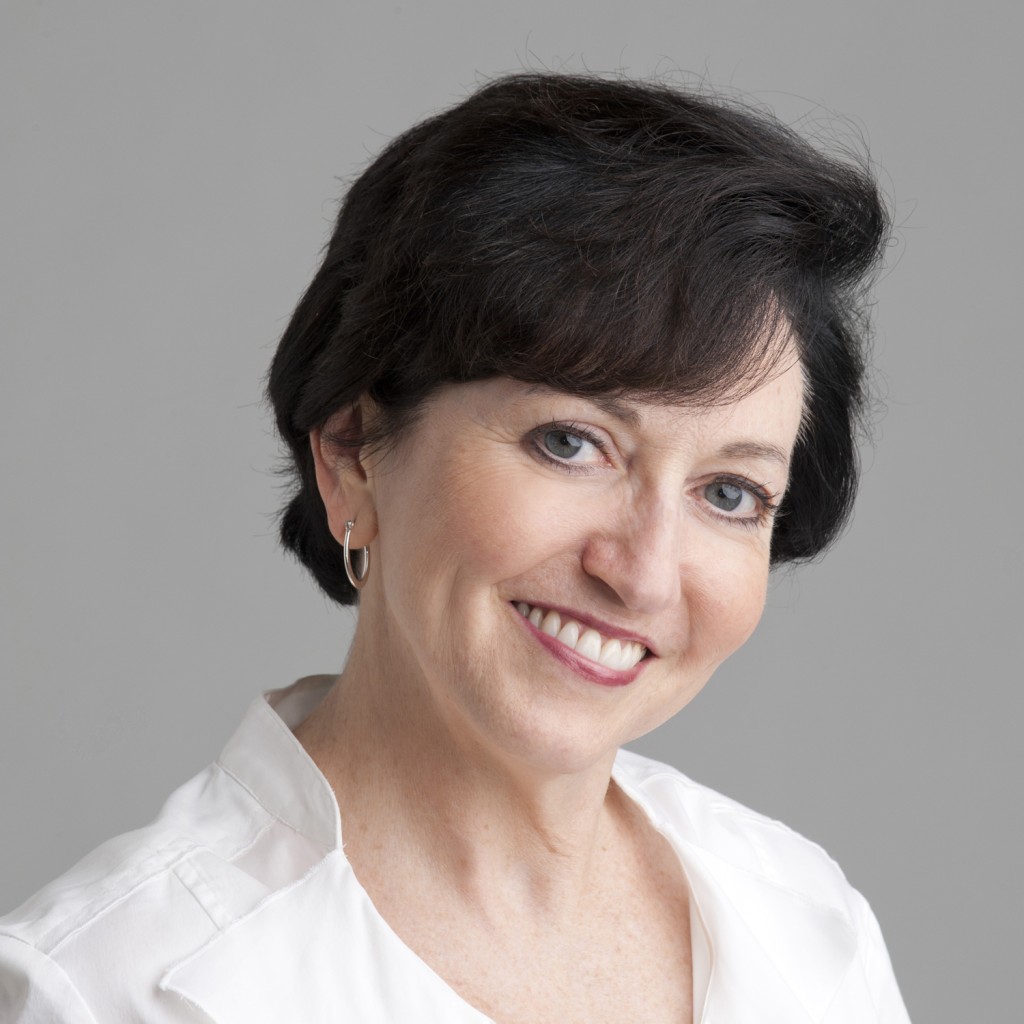 DEVELOPMENT is:
DEVELOPMENT is:
“The total process by which an organization increases public understanding of its mission and acquires financial support for its programs.”
~ Source: AFP Fundraising Dictionary, (Association of Fundraising Professionals)
I believe development is everyone’s job: Staff, board, volunteers, clients, neighbors, vendors, donors.
Rather than finger pointing about what’s NOT getting done, my coaching is to notice and give a shout out to what IS working. Find time to thank, acknowledge, fist-bump, or high-five those people on the board who ARE doing exactly what was outlined in their orientation.
Communication is key to creating a board experience that’s interesting, exciting, and enjoyable.
My motto: “It is 100% staff responsibility for board members to be great. AND 100% board responsibility to do what we said we’d do.”
There are many, many good resources to help you train, excite, and engage your board. Taking time to add in some professional development training for THEM is as important as it is to add in time to train your staff.
Asking Styles Get a Great Feature in Planned Giving
by Brian Saber
Viken Mikaelian, CEO and Author of PlannedGiving.com recently featured Brian Saber and the Asking Styles in his quarterly publication.

Asking Matters President, Brian Saber, touches on a number of topics including the Asking Styles. He talks about his start in the nonprofit community, the benefits of being authentic in fundraising, as well as his personal struggles and ultimate success learning how to overcome being a shy fundraiser.
Being included in Planned Giving is a great opportunity to introduce the Asking Styles to a new group of fundraisers. Learning how to best utilize your personality is all a part of becoming a better asker, and it starts with the Asking Styles Assessment. A mini-quiz is included in the article, but be sure to take the full Asking Styles Assessment here.
Read the Asking Styles feature here or access the full newsletter from Planned Giving here.
There is no such thing as the “perfect” or “ideal” fundraiser. Your story is probably similar to mine. I wanted to make a difference in the world, decided to go into the non-profit sector, was asked to fundraise along the way, found I was good at it…and here I am 30 years later!
So, if most of us aren’t the prototypical fundraiser, what does that mean? It means we need to embrace all the wonderful qualities each and every one of us brings to our work, and we need to play to our strengths. We need to fundraise in our own Asking Style. – Brian Saber
Small Talk for Fundraisers
by K. Michael Johnson
I was shy as a kid – really shy.
That kid clinging to his parents’ legs when unknown adults were around? Me.
That kid hiding out in the store not wanting to be seen by a classmate who just came in? Also me.
Fast-forward to the start of my fundraising career, where suddenly it was my job to start and grow relationships. Old habits die hard.
That gift officer talking himself out of picking up the phone? Or spending more time talking to colleagues at events than prospects? Me again.
I just dreaded the thought of engaging socially, especially making small talk. Not because I didn’t like people, but because in those settings, I just didn’t like me. I knew I wasn’t outgoing, charming, gregarious…extroverted.
So, I avoided as much of it as I could. And, as you can imagine, this was bad for business. I missed great opportunities to build rapport with prospects.
Maybe you can relate. Ever catch yourself wishing you were more confident in social settings? Particularly if it’s part of your job?
Or perhaps you have no trouble at all making small talk, but could benefit from a few tips on how to use it to your advantage as a fundraising professional.
Either way, small talk can be a powerful tool and I’ll show you how to make it work for you. Whether its chit chat at an event, or a quick phone conversation, small talk can be used to discover valuable information about a prospect, or better yet, tee up a face-to-face visit for a more focused conversation.
Let’s face it – small talk is part of the job. It’s certainly not everything, but we can’t undervalue its importance to starting relationships, building rapport, and making people feel good about us, and ultimately, our organizations.
You too can make a shift here if you’re stuck like I was. Believe it or not, small talk is a skill you can acquire and improve with practice.
And not only that, you can turn it into a strength.
Part 1 – Mastering the Inner Game
The most important change I made when it comes to small talk was to reframe my own thinking.
Without even knowing it, most of us are influenced by a set of assumptions about ourselves and the world around us. These “invisible scripts” are extremely powerful in shaping the way we interact with other people.
Do any of the following sounds familiar?
- “I’m terrible at small talk because I’m not outgoing, dynamic, or interesting enough.”
- “Nobody wants to talk to a fundraiser. Introducing myself would just bother her.”
- “An awkward conversation might ruin the relationship and our chances of ever getting a gift.”
You can probably spot the problems with these scripts. First of all, they’re fairly self-absorbed. And secondly, they’re based largely on untested assumptions.
If your invisible scripts about small talk are anything like mine were, you’ll benefit from the type of mental shift I’m talking about. Here are three replacement scripts that will reframe your thinking about small talk and social interactions.
- “I am the host, not a guest.” This mental shift works for phone calls, one-on-one visits, social events, any situation. A host is active, not passive. A host takes the initiative to start and guide conversations. A host is concerned that others feel comfortable and welcome.
- “I can help people feel good about themselves.” The people you interact with will remember very little of what you say, but they will remember how you make them feel. People feel good when someone makes an effort to strike up a conversation, asks questions about their area of expertise, and truly listens to what they have to say.
- “I have value to add.” You have value to add because you represent a great organization that is addressing important issues. Instead of worrying about how you’ll be perceived, focus instead on what is truly great about your nonprofit and how you can serve as a conduit, connecting others to its work.
You can use these simple mental shifts to reframe negative thinking about making small talk. Start by carefully considering what invisible scripts might be running inside your head. Are they based on untested assumptions? If so, replace those scripts with the ones provided above. Or better yet, come up with your own!
K. Michael Johnson is a major gift officer at a large research university and the founder of www.fearless-fundraising.com, where he blogs about the inner game of deeper relationships and bigger asks.
You can contact him at k.michael@fearless-
Interview with Asking Matters Member Ninette Enrique
by Brian Saber
I was fortunate enough to interview Asking Matters member Ninette Enrique of the St. Luke’s School in New Canaan, Connecticut in April. The school has a strong history of receiving major gifts. We discussed how she uses her Asking Matters membership to guide and motivate herself, her board members, and other volunteers. What has your experience been? I’d love to hear from you at brian@askingmatters.com. Brian Saber, President.
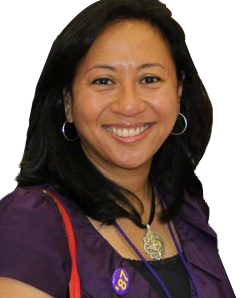 BRIAN: Hi, Ninette. First of all, thanks for being a long-term member of Asking Matters! You’re a very experienced and successful fundraiser, so I’d like to know – how does Asking Matters help you given that you came to it with a solid background in asking?
BRIAN: Hi, Ninette. First of all, thanks for being a long-term member of Asking Matters! You’re a very experienced and successful fundraiser, so I’d like to know – how does Asking Matters help you given that you came to it with a solid background in asking?
NINETTE: Asking Matters does a great job of focusing on the asker and what strengths he or she brings to the table. I find great comfort in being able to approach the asking process through the lens of Styles, particularly when I’m training board members or volunteers. Potential volunteers tell me, “I don’t like to ask people for money.” Having them take the assessment is an effective first step to getting them comfortable with fundraising. When they realize they identify with a certain style that has shown to be successful in fundraising, it builds confidence that they can do it.
When I took the Asking Matters assessment, it gave me confidence that I can speak with a spectrum of donors effectively. I can also pair with a number of volunteer donors and particularly with one who represents a Style I don’t have. While I identify most with the Rainmaker style, I believe my tendencies toward Go-Getter and Mission Controller stem from my experience in soliciting different donors over the years.
Finally, Asking Matters has developed a number of really helpful materials, whether it’s for board training or as a reminder to me of the components of an ask. I appreciate the regular Monday email, which helps me focus on asking vs. the many administrative duties I have.
BRIAN: Wow, Ninette. That’s a great endorsement – thanks! So if taking the Assessment is an effective first step with volunteers, how do you follow that up? I know that’s one of the biggest challenges – training volunteers. What do you do?
NINETTE: We are still new to training volunteers in this way, but this is what I do now. Once they take the assessment, I say “Oh, you are a so and so, and this person is also a …” That makes them feel like they’re in a group. Then I say, for example, “Since you are a Mission Controller, you would be great at strengthening our case. Can I meet with you and have you help me in that regard?” Based on what they are, I give them assignments that are in their wheelhouses, and the language of the Styles becomes the shorthand for how we get volunteers involved and what we ask them to do. We are planning a development retreat in the fall. We had a retreat in February, and for that I had everyone fill out the assessment and introduced the Styles. In the next session, I would like to take people through the process of the ask by using your materials.
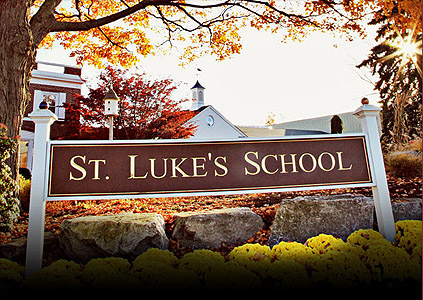 BRIAN: That’s great. I’m curious – what’s your thinking behind why the Mission Controller would be great at strengthening the case? Also, are you matching volunteers with prospects based on Styles?
BRIAN: That’s great. I’m curious – what’s your thinking behind why the Mission Controller would be great at strengthening the case? Also, are you matching volunteers with prospects based on Styles?
NINETTE: Mission Controllers can poke holes in the case as they are looking for data and what hasn’t been thought of. That’s what I think. Am I wrong? I haven’t matched prospects with Styles – I’m not that deep in yet with using the system.
BRIAN: There’s no wrong! That actually makes lots of sense given how detailed they are. I like it! Has anyone said they think his or her Style assessment is inaccurate?
NINETTE: Yes, in which case I ask them to see which style fits.
BRIAN: Thanks. What would you say your ultimate goal is for your volunteers?
NINETTE: To be comfortable with asking and want to do more of it.
BRIAN: Do you think they’ll all ask for gifts one day? I’ve come to think the bar is set too high and the goal for most organizations should be that everyone’s (at least the entire board) involved in cultivating prospects but only some will actually ask for gifts. What do you think?
NINETTE: I think you’re right, but it doesn’t hurt to have everyone take the Assessment and train trustees to ask. What I’ve been trying to do is take trustees on visits with me, so they can see how a solicitation goes. Eventually, they feel comfortable with the process. It’s about making the unknown known. When they see the process for what it actually is, they realize it’s not scary and, in fact, very fulfilling.
BRIAN: Agreed! We assume our board members either already know how to fundraise or will be comfortable transferring their skills to their new volunteer duties. In fact, they need training and practice just like we do! I also like to point out that there are many things to ask for other than a cash gift – in-kind, volunteerism, advice, board membership, etc. – and people are often more comfortable asking for those resources first, which builds their comfort and ability. Best of luck and thanks for the insights.
NINETTE: Thanks, Brian.
Fundraising is NOT Fun!
by Brian Saber
Contrary to what Arthur C. Brooks of The New York Times declared in his March 29 Op-Ed “Why Fund-Raising is Fun” – fundraising generally isn’t fun and he does a huge disservice to the field saying it is.  Fundraising can be incredibly rewarding, no doubt. As a frontline fundraiser my whole life, I have gotten huge satisfaction bringing important dollars to organizations that are doing incredibly important and impactful work. And it’s been wonderful to watch some people grow as donors over the years.
Fundraising can be incredibly rewarding, no doubt. As a frontline fundraiser my whole life, I have gotten huge satisfaction bringing important dollars to organizations that are doing incredibly important and impactful work. And it’s been wonderful to watch some people grow as donors over the years.
Fundraising can be fascinating. Getting to know people so well and understanding what makes them tick and what makes them give – or not! – is very interesting to me. I think we learn more about human nature when people talk about their money and how to spend it than when we talk about sex or anything else.
But fun? Fundraising for most of us doesn’t involve glamorous, high net worth donors. It doesn’t involve traveling to exotic parts of the world, learning from world-class scientists. It doesn’t involve being highly compensated. It doesn’t involve having all the necessary tools at our fingertips. For most of us, fundraising is very, very hard work that is barely acknowledged. And most of that work is spent helping our organizations make our June 30 or December 31 fiscal year budget. We’ve got programs that need to continue running and that will only happen if we make our numbers. We have the pressure of keeping our organizations going. If we don’t bring in the money, people get fired and no one gets the programs and services they need.
For most of us, fundraising isn’t some spiritual calling. We came to the non-profit world to make a difference. We found out we could be effective as fundraisers, and we agreed to do what is often the hardest, most thankless work in an organization. That doesn’t make us martyrs, but it does make us people who were willing to put aside certain levels of fulfillment in order to help the world be a better place.
That doesn’t mean we don’t feel fundraising can’t be rewarding or fascinating or whatever. But it simply isn’t fun. And saying it should be or could be is dismissive and denigrating to me and my countless peers in the field who get out there to fundraise every day. The reality of the non-profit world is there are tons of little-known organizations doing amazing work on a shoestring that need to raise annual fund dollars every day of the week to keep the organizations going.
There are tons of organizations putting on special events, sending out letters, asking for in-kind contributions, writing proposals. So instead of telling us it should be fun and making us feel bad if we feel we missed the party, how about acknowledging the hard work we do? That will resonate a lot more with me and my countless peers in the field.
Interview with Asking Matters Member Kylie Pierce
by Brian Saber
I recently had the opportunity to interview Asking Matters member Kylie Pierce of the Rome Capitol Theatre about how knowing her Asking Style has impacted her fundraising and helped her as a development officer. What has your experience been? I’d love to hear from you at brian@askingmatters.com. Brian Saber, President.
BRIAN: Hi Kylie. I know you’re a big fan of Asking Matters and I appreciate that. What in particular has been helpful to you?
KYLIE: When I started in the development field, I read articles and attended webinars by the “rock stars” of fundraising. They seemed to be outgoing and confident, and I was worried that if I couldn’t emulate their style (I am fairly reticent and introverted until I feel comfortable with people) that I would never be successful. I kept trying to fit my square peg into the round hole of gregariousness and dynamism, but it wasn’t working.
When I ran across Asking Matters and the Asking Styles Assessment, I finally realized anyone could ask, and success is based more on catering to one’s particular strengths than trying to be something one is not. I feel so much more comfortable with my role now.
BRIAN: That’s great to hear and sounds a bit like my story. For years I kept thinking I wasn’t the prototypical fundraiser. I like your “square peg” analogy. Besides the “aha” moment we all have with Asking Styles, are there specific techniques you’ve learned that work well for your Style?
KYLIE: The first time I took the assessment, I knew I would identify with the Kindred Spirit style because that is the way I had done most things up until that point. I was surprised and intrigued, though, to realize I had a bit of Mission Controller in me. I always knew I loved data (I have a degree in geology), but I didn’t realize that it could influence my work here. That realization gradually led me to where I am today – Mission Controller/Rainmaker!
I feel much more confident (which makes me more extroverted) when I have the data to refer to, and I work more effectively when I have the numbers to back up my case. I now take extra time for preparation, updating spreadsheets and dossiers, reviewing them carefully, and preparing information packets for myself and the prospect. I plan out my objectives beforehand, and I use my intuitive side to make sure
I’m not overloading them with information!
BRIAN: That’s fascinating, Kylie. Since our personalities basically are what we are, it sounds as if you’ve learned how to address your challenges in fundraising and become a stronger fundraiser by being more systematic and studious, and being planful gives you more confidence. So in fundraising you act more like a Mission Controller/Rainmaker, though I would think in other parts of your life your intuitive side still reigns. Does that sound accurate?
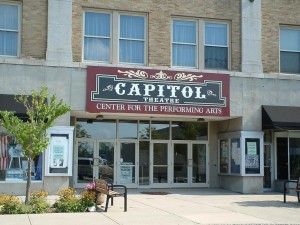 KYLIE: Oh, definitely. I am still a Kindred Spirit in my home life – I’m quite the intuitive introvert when I’m not at work. That said, these days I’m constantly making databases of things around the house because they help inform my domestic decisions, maybe even more so because I’ve seen how well this works at the office! But I doubt I’ll ever show the traits of a Rainmaker at home.
KYLIE: Oh, definitely. I am still a Kindred Spirit in my home life – I’m quite the intuitive introvert when I’m not at work. That said, these days I’m constantly making databases of things around the house because they help inform my domestic decisions, maybe even more so because I’ve seen how well this works at the office! But I doubt I’ll ever show the traits of a Rainmaker at home.
BRIAN: That’s interesting to hear, Kylie. We all take on slightly different personae depending on the situation. I always say the Asking Styles give you a guideline but that you have to figure out for yourself what works and doesn’t work. You recently told me you were using the Asking Styles with others in your organization. Tell me more.
KYLIE: Yes, I bet your ears were ringing because I was talking about it with someone today! Now that I have been in development for a while, I know people won’t give unless they’re asked, and people don’t ask because they’re afraid. I believe Asking Matters takes much of the fear away by giving people tools and tips that actually apply to their inherent nature. Because of this, I’ve integrated the exploration of the Asking Styles into much of our solicitor training–using Andrea’s “Asking Styles” book–and even into committee work. I find that if I know someone else’s Asking Style I have a better understanding of their needs. I make sure to find out the Asking Style of any solicitors accompanying me on asks so we can be successful as a team. For example, I work very well on fundraising calls with my Executive Director because he is a Kindred Spirit/Go-Getter and I’m a Mission Controller/Rainmaker (in fundraising!).
BRIAN: This is really great to hear, Kylie. Thanks for sharing your experiences with me. One last question. Which of the Asking Matters resources are most helpful to you? Maybe the top two?
KYLIE: Gosh, it’s hard to pick two. I like the downloadable asking exercises; they work great for trainings and getting my colleagues more comfortable with asking. I also love the live and recorded webinars and trainings. I’ve learned a lot from the topics, and I love that they’re free to members. I attend quite a few webinars (in fact, I’m attending one today at our local AFP chapter), and I consider the monthly membership fee a very small price to pay for these high-quality offerings.
BRIAN: Great to hear! I plan to get many more exercises and recordings up on the site this year. Thanks, Kylie!
Asking Styles Take Hold in the Industry
by Brian Saber
It was incredibly rewarding to see the front page coverage of Asking Styles in our industry’s leading publication – The Chronicle of Philanthropy. And how great that a number of our members and clients – Amanda Swan, Sophie Penney and Scott Koskowski – were featured in it! Read the full article to find out what they and some of my peers in the field have to say about Asking Styles and other personality tests.
Scott Koskowski, Director of Major and Planned Gifts at the Morris Animal Foundation, has been seeing some tremendous success from matching donor and asker personalities.
Applying the Asking Styles principles (and assessment) has really helped us. We’re at 85% of our staff-derived revenue goal with 4 months to go in the fiscal year; last year at this point, we weren’t quite at 50%! – Scott Koskowski
Personality plays a huge role in fundraising – we all know it – and now that concept is getting it’s proper due. Fundraisers are not all the same, and if we embrace our unique style and focus on our strengths, we can all be successful.
Lots of people continue to be surprised when I identify as an introvert (my Asking Style is Kindred Spirit) but it’s true! I have learned to be successful by playing to my strengths and finding ways to ameliorate my natural shyness around people – especially people I’m just meeting or getting to know.
Do you know your Asking Style? Take three minutes to find out. It’ll be an immediate eye-opener for you.
This article is reprinted with permission of The Chronicle of Philanthropy.
Welcome From Brian
by Brian Saber
This post was written by Brian Saber, Asking Matters President. Brian has spent his entire career ASKING for money for non-profits. From his early days as a student leader and telethon caller (!) to his six years in charge of major and principal gifts throughout the Midwest for Brandeis University, to his two stints as an executive director, every position involved significant face-to-face solicitation. And he is still honing that art today, cultivating and soliciting select major donors for various clients. With that perspective Brian created Asking Matters, a resource that all non-profits could afford.
Welcome to Asking Matters, where you can access my most effective tips and techniques for learning how to ask for donations face-to-face. I’ve developed this system based on making thousands of asks, for a variety of organizations during my 30-year career as a frontline fundraiser. Asking face-to-face is not easy, but it is the most effective way I’ve found to increase giving and hit your fundraising goals. In my experience, there’s no asking strategy that can beat it. Not phone calls. Not email. Not snail mail. Nothing is going to help you hit your fundraising goals faster than mastering the art of asking face-to-face. That’s why I’m so excited to share this collection of tools, training, and community resources designed for every skill level from a fundraising newbie to a seasoned director of development or executive director. I can’t help thinking how much time and effort I could have saved if I had this type of resource early in my career. At Asking Matters I apply all my experience and knowledge from the field to a proven system of training and support that helps fundraisers ask for gifts comfortably and successfully. I start with the idea that you have a specific Asking Style and that you can be a more effective fundraiser when you ask in your unique way. With the self-awareness and confidence you’ll feel knowing your Asking Style, I’ll teach you the ins and outs of asking for gifts. You’ll learn how to:
- Conduct an ask from start to finish
- Respond when a donor says “maybe” or “no”
- Make the strongest case for support
- Follow up with your donors effectively
- Train your staff and board to be better askers
And because effective asking takes ongoing practice and learning, I’ll continue to offer new perspectives, refresher exercises, tools, and inspirational stories from the field. Take the Asking Style Assessment and then become an Asking Matters member so you can ask more, raise more, and DO more for your cause. Here’s to your fundraising success, Brian Saber President Asking Matters
Interview with Dawn Carmichael of Providence Health Services
by Brian Saber
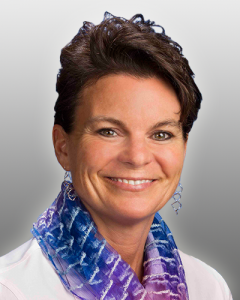 Dawn Carmichael, a Premium Member of Asking Matters, is a Philanthropy Officer for Providence Health Services in Alaska. Asking Matters President Brian Saber recently had the chance to talk to Dawn about asking. Below is a transcript of their conversation.
Dawn Carmichael, a Premium Member of Asking Matters, is a Philanthropy Officer for Providence Health Services in Alaska. Asking Matters President Brian Saber recently had the chance to talk to Dawn about asking. Below is a transcript of their conversation.
Brian: Hi Dawn. So what’s your Asking Style?
Dawn: My Asking Style is Rainmaker strongest and Mission Controller second. These styles both fit me well and consistently hold true.
Brian: So your analytic side really predominates?! What’s most important to you in preparing for a meeting with a donor?
Dawn: I like to be very well prepared. I want to have as much information as possible before going into a meeting with a potential donor. That said, if I don’t have much information that is okay too, because I don’t mind asking questions to get to know the donor. I like the investigation component of my job and then meeting the person to learn “the rest of the story.”
Brian: The ” I don’t mind” not having all the info is definitely your Rainmaker speaking! Dawn, do you ever ask for a gift the first time you meet a donor and, if so, under what circumstances? How do you compensate for that? This is something many of our members wrestle with.
Dawn: As a major gift officer you would think that an ask on the first visit would be totally out of line, and often it would be. However, if I’ve had a lot of interaction before meeting the donor in person, then it might be okay. During the meeting I will gauge if all is going well and, if so, then I will proceed with my intended game plan. If the discussion turns and the original game plan doesn’t feel appropriate I will change my tactic. That said, at every visit I always provide the donor an opportunity to give, and that may include a soft ask at the leadership level of $1,000.
Brian: Thanks, Dawn. So do you sometimes ask for a gift when you haven’t given the donor a heads up?
Dawn: I go to every meeting with an ask in mind, and with a list of questions to help me determine that we are the right fit, both personally and organizationally.
Brian: Does the donor know explicitly that you’d like to ask for a gift? If not, how do you test the water?
Donors give to meet their needs not ours
Dawn: More often than not the donor has a pretty good idea why I am coming to visit because they know I represent Providence Foundation, the fundraising arm of Providence. However, there are those occasions when the prospective donor may not know why I’m visiting or is new to the organization. In those cases, I start by explaining the role of the Foundation and the mission of our organization.
However, I still try to spend most of my time listening. Listening is most important. Donors give to meet their needs not ours, so it is extremely important to determine what is important to them and how our mission can fulfill their need.
Brian: I really like that – “donors give to meet their needs, not ours.” What do you think your donors need most?
Dawn: Bottom line, the donors wants to know their investment is going to where they intended, that the program or service is worthy and needs funds to continue, and that it will make a difference in someone’s life. It is extremely important they understand that our organization will be a good steward of their investment, large or small.
Brian: We hear a lot about metrics and outcomes. Do you find your donors are asking for proof of results more than they used to?
Dawn: For the most part, our donors don’t even know these terms – it is more within the industry that we hear about meeting metrics and positive outcomes. I do find, however, that our donors are asking more about specifically where their funds are being use and/or dictating exactly where they want their funds to be used.
Instead of metrics and outcomes, our donors are mostly satisfied with a story about a child that their donation helped, or a cancer patient whose way we eased through the clinical process. Stories are the very best way to satisfy the donors’ need to know how their donation made a difference in a patient, family or child’s life. This is our opportunity to demonstrate trust, which can make donors even more supportive in the future.
Brian: So, you say donors want to hear stories about the impact you’ve made on a patient, family or child’s life. However, you are an Analytic. That tells me your comfort level with stories is more on the outcomes, goals, and systems side. How do you reconcile that and give the donors what they need?
Dawn: You are so right; my storytelling skills are certainly being put to the test, as I’m most comfortable with the outcomes, goals, and systems side. I have had to listen and practice a lot. However this has given me the opportunity to reach out to our nurses and physicians to hear some of their stories and get a better understanding of what patients and families go through in vulnerable situations. And this is making me a better philanthropy officer, as I understand the need and our impact that much better.
Brian: That’s wonderful. Dawn, thanks for sharing with me.
Dawn: You’re welcome, Brian. Many thanks to you for all your great training and support.
Brian: My pleasure!

